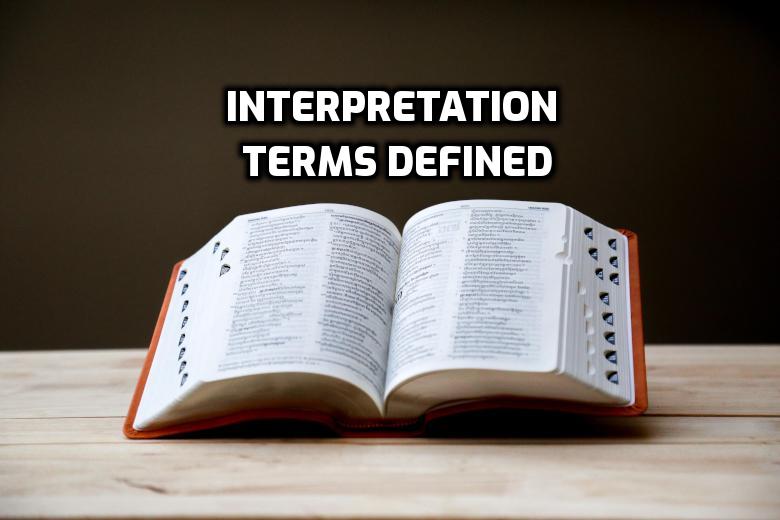Exegesis, eisegesis, hermeneutics? Wondering what all those terms mean? Here’s the definitions.
Interpret
Here are three definitions from the Concise Oxford Dictionary. All three have the idea of “meaning” in common.
- “to expound the meaning of” (i.e. proclaim, exposit something you already know and what to tell)
- “to make out the meaning of” (i.e. work at figuring out; meaning is relatively obscure and need some work to be discerned)
- “to bring out the meaning of” (i.e. to elucidate, expand upon a clear meaning)
Meaning
Three definitions from the Oxford English Dictionary:
- “intention, purpose”
- “that which is intended or to be actually is expressed or indicated”
- “significance”
Exegesis
- from the Greek: “leading out, drawing out”
- “the explanation of what a passage of Scripture meant in its literary and historical context”
Eisegesis
- From the Greek: “leading into”
- “the reading into a passage of Scripture what is not there in the meaning of the text”
Hermeneutics
- “The explanation of what a passage of Scripture means in the context of the whole of Scripture with particular reference to its application for any person or situation”
- Hermeneutics builds upon exegesis and focuses on the contemporary application rather than meaning to the original readers.
- “The only proper control for hermeneutics is to be found in the original intent of the biblical text” (Fee & Stuart, pg. 26).
Part of the Series: Bible Study 101
Photo by Pisit Heng on Unsplash

